In the beginning, the Earth was without form, and void.
Well, those parts of the Earth outside Lord Asoka's limited purview, anyway. The intervalley region was lush, filled with fertile grasslands and edible grains, and teeming with strong Elephants and life-giving Cattle. In order to honor these beasts of burden, Asoka founded Delhi in the midst of their largest herd, which is why, even today, cows can be seen walking the city's streets:
The most fleet-footed among the people were trained to venture beyond the city's borders to improve the landscape. The provisioning of these hardy foragers sorely taxed the fledgling settlement's meager larders, though, and kept the population from growing. In order to better prepare for the future, the people studied the delicious grains, determining how to best cultivate them as proper crops.
Indian Warriors, meanwhile, pushed into the southern jungles, and returned with valuable treasures from the generous tree-people:
There was little need for gold in those early days, but Asoka was a wise man, with a constant eye to the future, so it was carefully stored away in the Palace.
The Indian Warriors turned west, mapping the coast and making contact with the mystical Arabian people. Their leader, Saladin, was a Cautious man, suspicious of any and all foreign tribes, but maintaining peaceful relations with the world. In 3400 B.C., Arab soothsayers codified an intricate hierarchy of the heavens:
This new religion, with its promises of karmic justice and reincarnation, warmed the hearts of converts. Asoka himself found its tenets, as well as its potential diplomatic and cultural benefits, gratifying, but he could not convert to the new faith until it established itself inside his borders.
Nearly a thousand uneventful years passed. Fields were planted with Wheat and Rice, noble Warriors were consumed by wild beasts, and the population of Delhi, training new fighting men and growing fat off the new agricultural bounty, tripled in size. Research went from planting fields to building Roads to learning how to cut back the choking Jungles.
Finally, it was time to establish an empire. The Workers set off, building a massive path westward. A band of unescorted Settlers followed behind them, relying on their agility to keep them safe from hungry animals. As they neared Mesopotamia, they began to hear the worrying sounds of Wolves in the distance. Thankfully, an intrepid band of Chinese martial artists were in the area, and offered to escort the frontiersmen to their destination. The Settlers graciously accepted. After a slow trip through the Forest, the city of Babylon was founded at the head of the Persian Gulf:
The city began building a Monument to leave an indelible mark that Babylon was Indian, through and through. The Chinese Warriors, their work done, and perhaps a bit unnerved by the jingoistic monolith being built, moved on to continue their inscrutable quest.
The early days of Babylon were harsh. The Settlers were unused to the Desert sun, and they were constantly aware of their disapproving Arabian neighbors. Without any garrison to keep the peace or protect against external threats, the population became restless. Work on the Monument continued, but more and more people turned to outlawry. One such bumbling band even managed to burn down their forest home:
Asoka was saddened to hear these tidings. With a heavy heart, he doled out a portion of the ancient jungle gold to pay for a replanting effort. That cache, once thought to be superfluous, was rapidly dwindling to pay for Babylon's excesses. But such was the way of the world.
Indeed, more Settlers were sent, though these built their new city closer to home, on the coast in Calcutta:
And this city, being on the border with the dangerously unpredictable Suryavarman, was sent a fierce garrison of trained Warriors.
Saladin, annoyed at Asoka's attampt to encroach on the Middle East, moved to encircle the settlement of Babylon. Asoka, seeing the danger in this, opted, with a heavy heart, to finish the Monument at any cost:
In 2150, yet another Settler was trained in Delhi. He stands awaiting orders. The round went, I believe, surprisingly well. We managed to found our second city deep into the Mesopotamian flood plains, which are an invaluable prize. I had to push Calcutta west a space out of respect for Sury's implacable Culture, but that's almost just as well. If we're going Culture, I think we have two of our three already founded (Delhi and Babylon). What should our final Legendary City be? I'm assuming the Settler should found a Persepolis analogue, but where? On the Elephants? On the Wine? On the Desert Hill?
Here's a look at our maps to give you an idea of what we're looking at:
So that's pretty much that. Iron Working is a full 25 turns off, due to our nest egg finally running out. Was that a huge mistake? I figure that, once we finally get that online, I can go AH-Pottery-Writing to finally pick the Economy up a little bit. I also need to start building a proper military.
Let the debates begin! Here's the save:
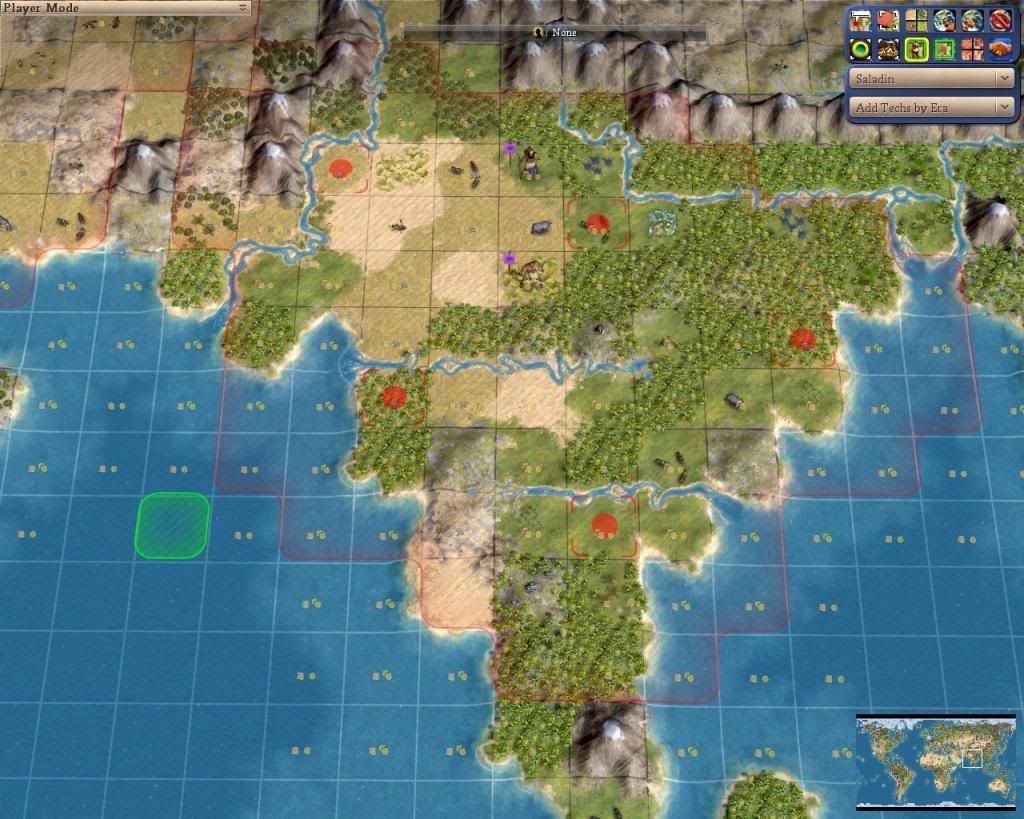
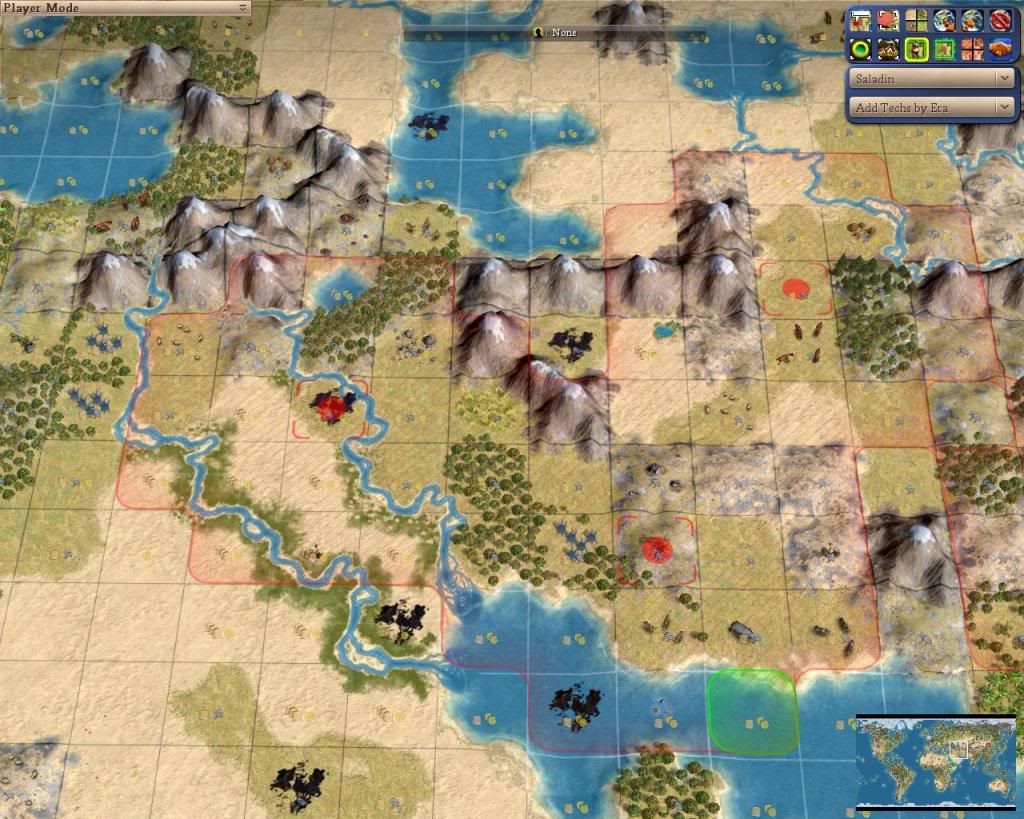
 and lots of floodplains for
and lots of floodplains for  , plus stone!
, plus stone! 

 and lots of floodplains for
and lots of floodplains for  , plus stone!
, plus stone! 


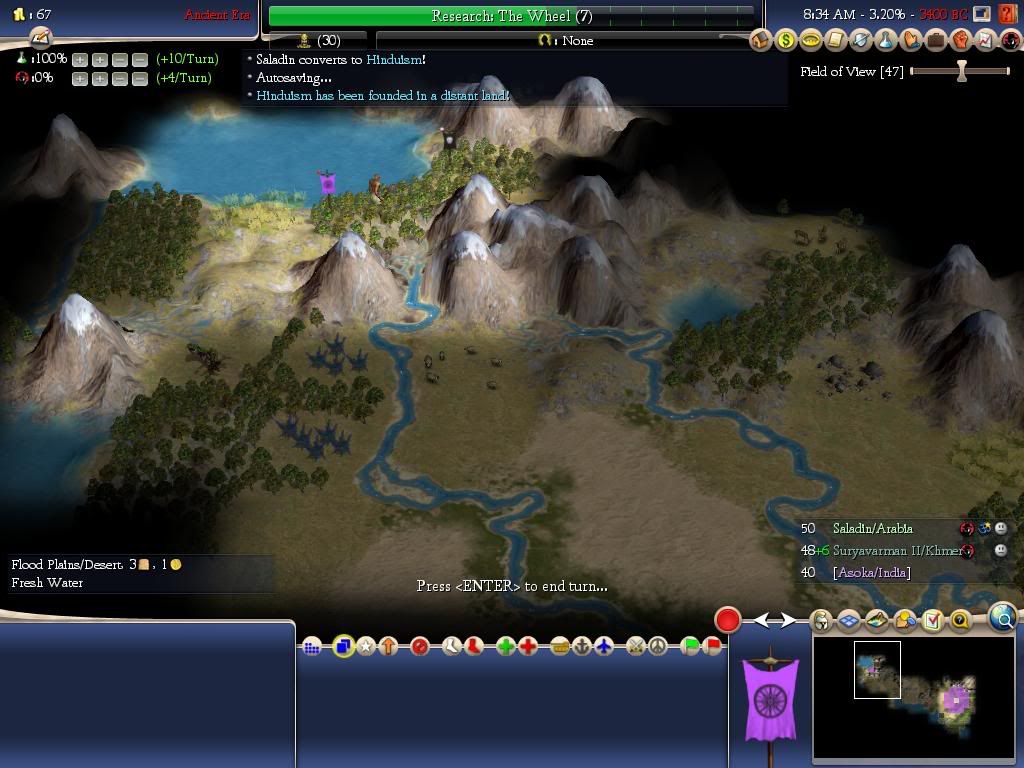
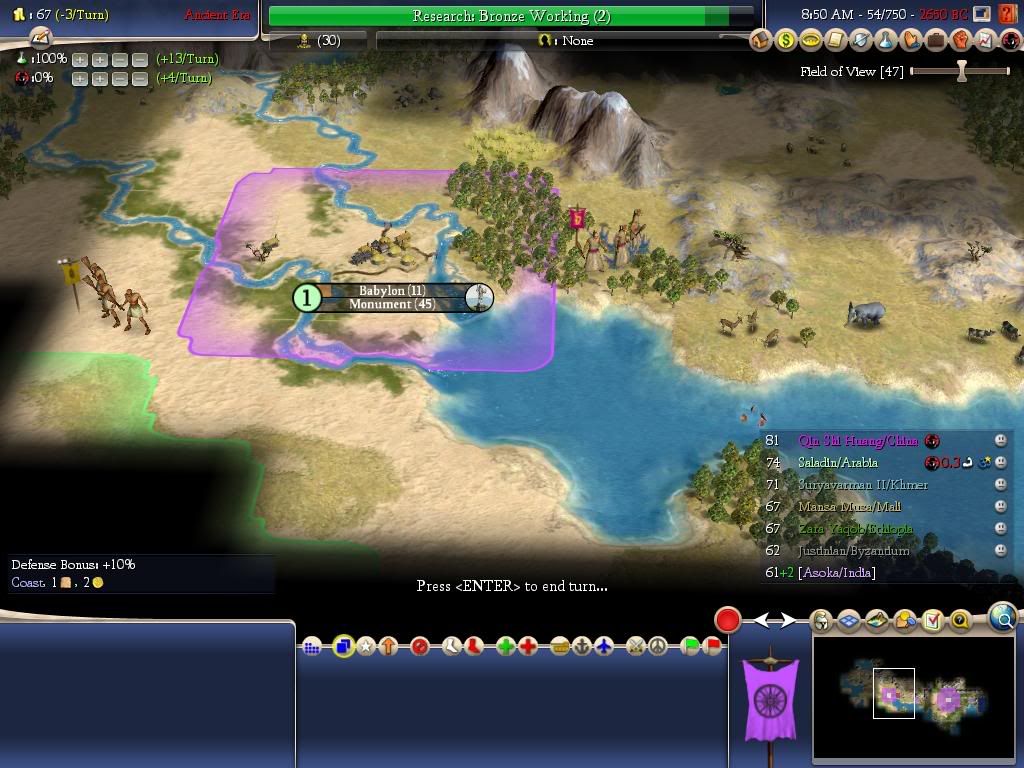
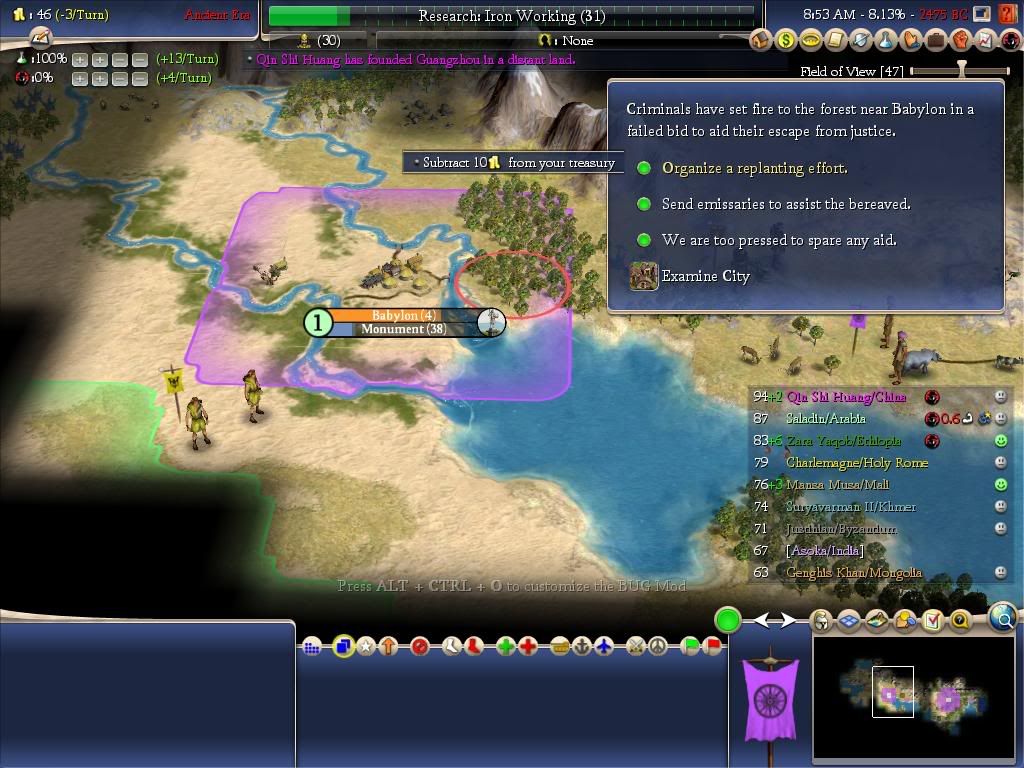
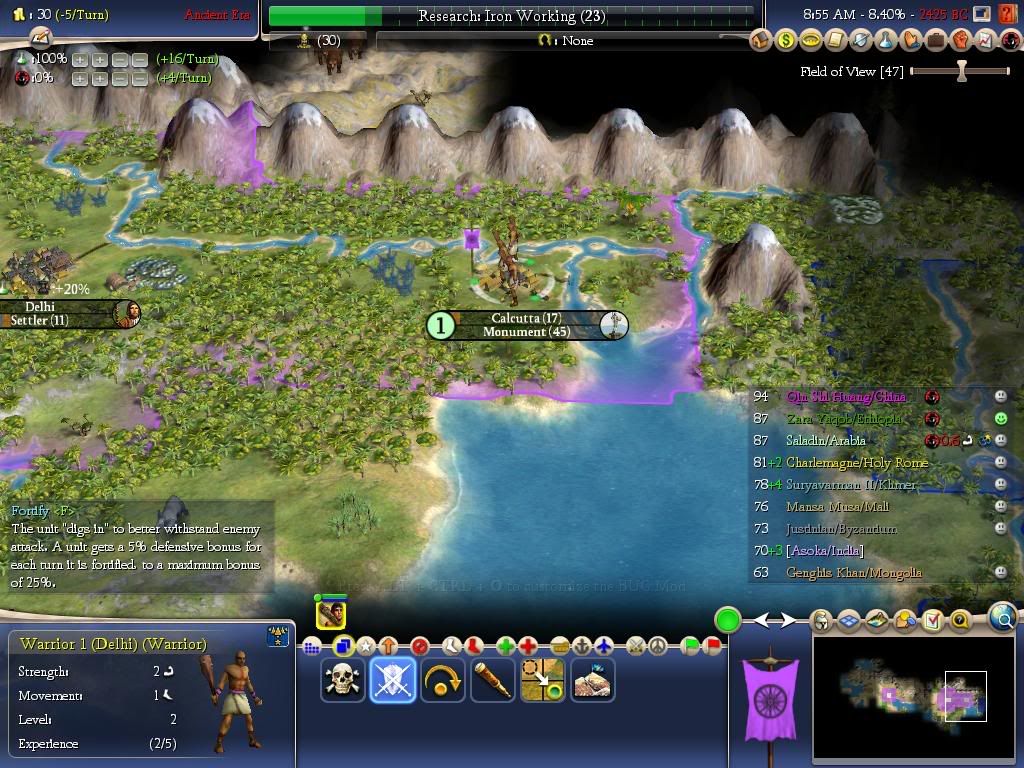
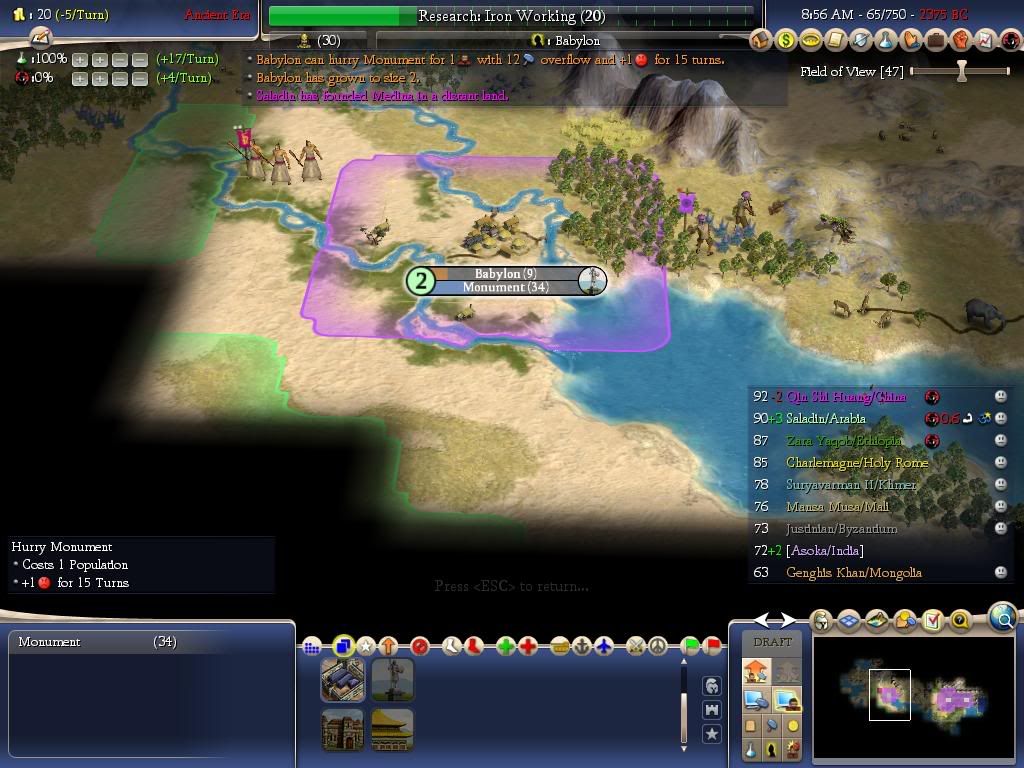
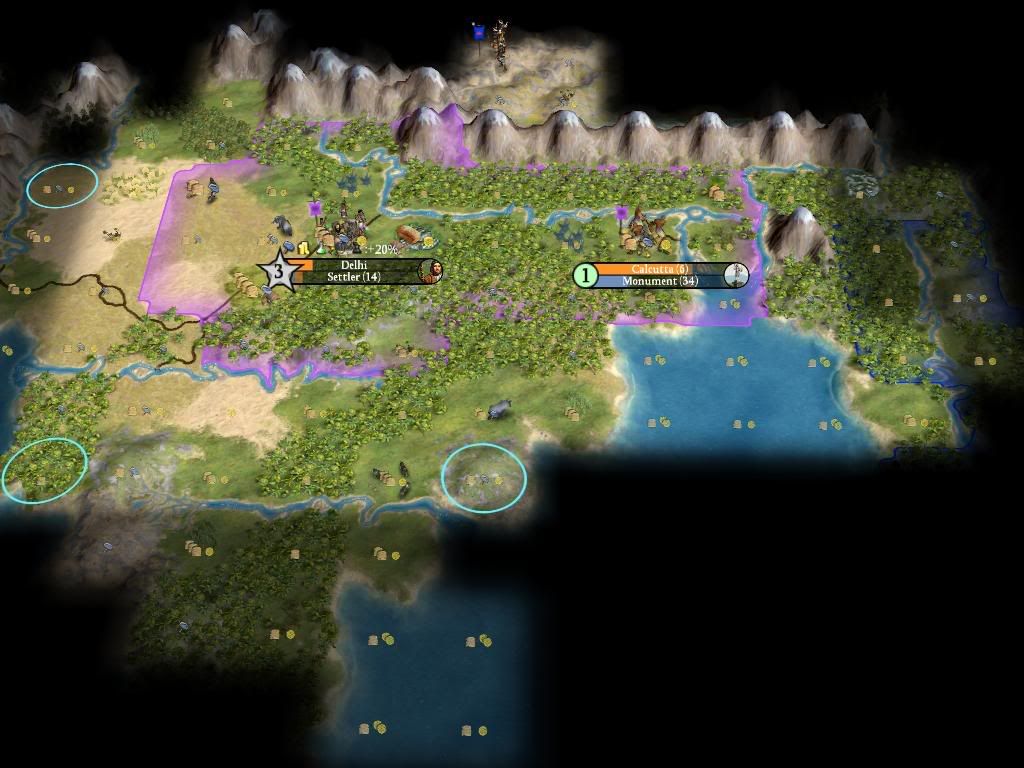
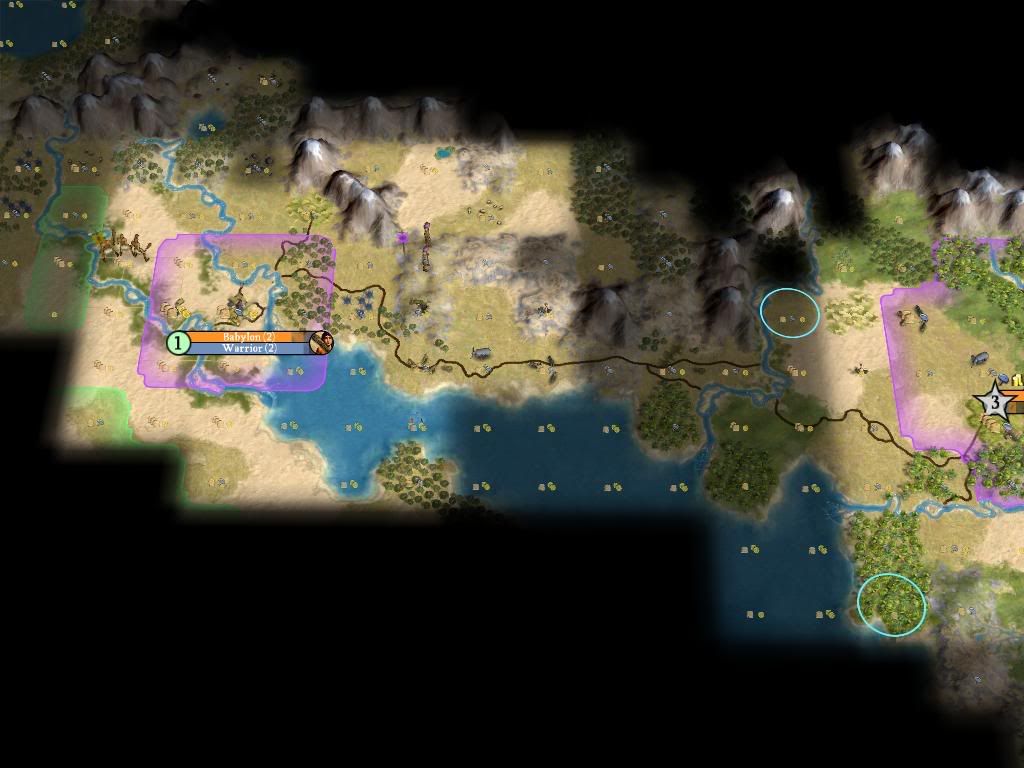
 Stone would have helped with wonders and cathedrals. You'd also have fewer overlapping tiles with Persepolis in the best spot - on the wines (coastal, still grabs the sheep, iron, jumbos, etc). Calcutta is well-placed. I would have gone for pottery before IW, though - maybe even before BW.
Stone would have helped with wonders and cathedrals. You'd also have fewer overlapping tiles with Persepolis in the best spot - on the wines (coastal, still grabs the sheep, iron, jumbos, etc). Calcutta is well-placed. I would have gone for pottery before IW, though - maybe even before BW.